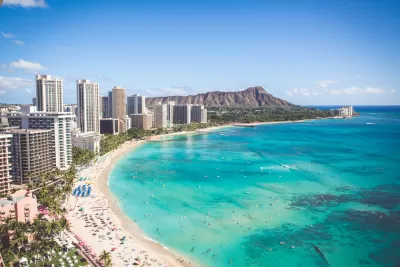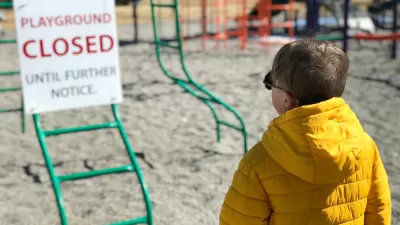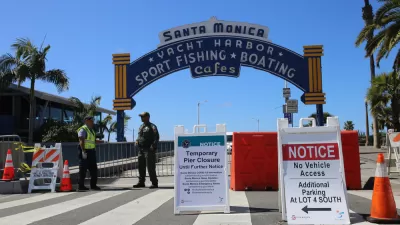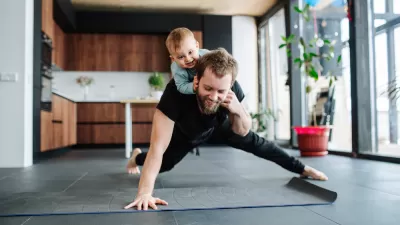Beaches and parks on Oahu are closed to the public once again as the city attempts to control the spread of COVID-19.

Can you imagine Honolulu without its beaches? Well, the beaches are not actually disappearing. But they are closed to the public until September 4th. Parks and trails (with few exceptions) are also off-limits as COVID-19 cases have spiked on Oahu, prompting authorities to act in an effort to prevent large gatherings of people in public spaces.
In the midst of the COVID-19 pandemic, beaches, parks, and trails across the U.S. have become very popular as more and more people venture outside for recreation. Numerous articles and studies have also documented how people are spending more time outdoors for their physical and mental health and well-being. Thus understandably, some Honolulu residents are disappointed and frustrated by the government's decision.
As Christy Stanton, one of the individuals interviewed for this Honolulu Advertiser article, said “I understand about the need to stop the virus from surging, but I think parks are where people can exercise and keep social distance in small household groups — we need it especially when people aren’t working and are cooped up.” There are, however, exceptions to the closures. Most notably, surfers are still allowed to get in the water; they are just not allowed to hang out on the beach. This provision is keeping those who surf happy, with their sentiments captured by Sean Steele who said the closures “don’t really affect me, I just surf.”
The next few weeks will be tough for Honolulu residents. After all, spending time in the beautiful outdoors is a key component of the slowed-down, low-stress island lifestyle. Let's hope that the closures will help to stop the spread of COVID-19 in Honolulu and that residents will be able to return to their beloved beaches, parks, and trails soon.
FULL STORY: Recreationists react to closures of city and state parks, beaches and campgrounds

Alabama: Trump Terminates Settlements for Black Communities Harmed By Raw Sewage
Trump deemed the landmark civil rights agreement “illegal DEI and environmental justice policy.”

Study: Maui’s Plan to Convert Vacation Rentals to Long-Term Housing Could Cause Nearly $1 Billion Economic Loss
The plan would reduce visitor accommodation by 25% resulting in 1,900 jobs lost.

Planetizen Federal Action Tracker
A weekly monitor of how Trump’s orders and actions are impacting planners and planning in America.

This Toronto Suburb Has More Bus Riders Than Columbus, Ohio
Brampton, Ontario used gradual improvements in service to prove that if you build it, they will ride.

Paris Bike Boom Leads to Steep Drop in Air Pollution
The French city’s air quality has improved dramatically in the past 20 years, coinciding with a growth in cycling.

Why Housing Costs More to Build in California Than in Texas
Hard costs like labor and materials combined with ‘soft’ costs such as permitting make building in the San Francisco Bay Area almost three times as costly as in Texas cities.
Urban Design for Planners 1: Software Tools
This six-course series explores essential urban design concepts using open source software and equips planners with the tools they need to participate fully in the urban design process.
Planning for Universal Design
Learn the tools for implementing Universal Design in planning regulations.
Smith Gee Studio
Alamo Area Metropolitan Planning Organization
City of Santa Clarita
Institute for Housing and Urban Development Studies (IHS)
City of Grandview
Harvard GSD Executive Education
Toledo-Lucas County Plan Commissions
Salt Lake City
NYU Wagner Graduate School of Public Service





























